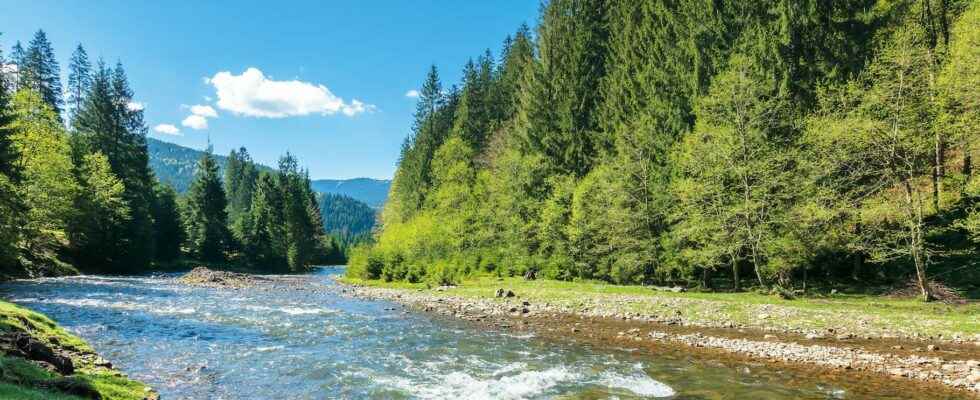In terms of water resources, some regions of the world are highly dependent on snowmelt. However, with anthropogenic climate change, runoff will become much less predictable. Making the management of freshwater resources even more difficult.
You will also be interested
[EN VIDÉO] An incredible process for transporting fresh water by sea Some regions of our planet have plenty of fresh water while others lack it. To overcome this problem, Spanish researchers have developed a strange solution: a pocket for easily and efficiently transporting water by sea. Discover it thanks to the Euronews channel, in this new episode of Futuris.
Météo France has just announced it. July 2022 will be ” very probably “ the driest month of July since 1959. This seems to be just the beginning. Simulations show a continuous increase in droughts of the ground throughout the XXIe century as a result of global warming. At least, concerning our country. Because elsewhere, the forecasts are not necessarily the same.
Of the researchers from the National Center for Atmospheric Research (NCAR/Ucar, United States) show, for example, that in regions of the northern hemisphere dominated by snow, it is the lack of predictability of water resources that should dominate. Even in areas that will continue to receive roughly the same amount of precipitationthe debit waterways will become more variable and unpredictable.
“In these regions, water management systems are based on the predictability of snow accumulation and runoff. However, much of this predictability could disappear with the climate change »notes Will Wieder, a researcher, in a press release from NCAR/Ucar. In case our emissions of greenhouse gases were to continue at the current rate.
Less snow makes the system unpredictable
For a long time now, researchers have pointed out that the coat snow tends to thin and melt sooner as a result of global warming because precipitation falls more as rain than snow. The meltingoccurs in winter . More randomly. Runoff becomes unpredictable and, in its wake, the flow of waterways.
The main impact will be regions such as the Rocky Mountains — where the amount of water contained in the snowpack could decrease by 80% — the Canadian Arctic, eastern North America and Eastern Europe. The management of fresh water resourcescould be very complicated. Both for society and for ecosystems. “Our efforts to improve our predictive models are being shattered by the rapid disappearance of our best ally, snow.explains Flavio Lehner, professor at Cornell University (United States). It may be a race that we are losing, but we are trying to regain the advantage by studying these subjects better”.
A way once again to underline how precious water resources are and should be preserved. Bearing in mind that the most severe impacts on snowpack, runoff and ecosystems can still be avoided if our society ultimately succeeds in reducing its greenhouse gas emissions.
A desire to escape for the summer?
To celebrate the holidays as it should be, discover the Mag Futura at the preferential price of €15 instead of €19, i.e. a reduction of 20% !
On the program of this issue: a dive into the heart of 4 scientific themes that will mark 2022, from the Earth to the Moon:
- What mysteries does the Moon still hide from us?
- Will we soon be able to cure everything thanks to genes?
- How to feed the world without destroying it?
- Can artificial intelligence become truly intelligent?
What is Mag Futura?
- Our first paper journal of more than 200 pages to make science accessible to as many people as possible
- 4 major scientific questions for 2022, from the Earth to the Moon
- Home delivery*
*Delivery is made in France (excluding metropolitan France), Switzerland, Belgium.
Interested in what you just read?
